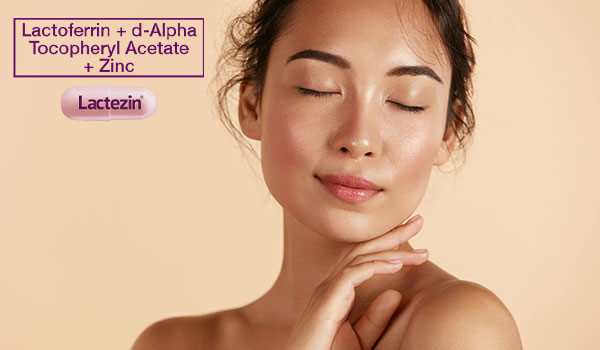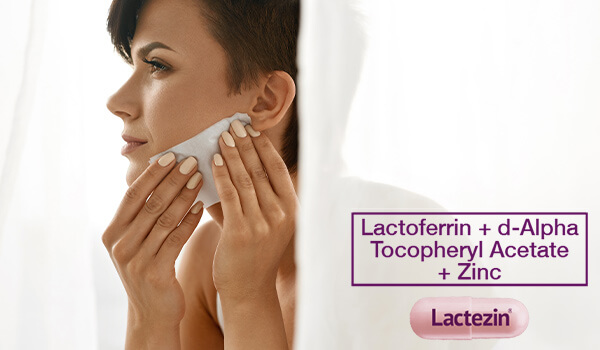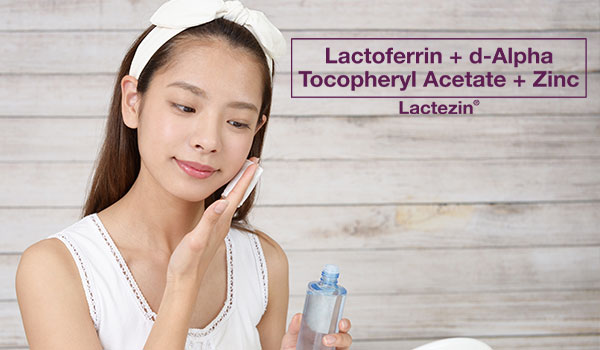Skin care at Home: Skin Care for Each Skin Type

Is your skin care fit for your skin type? There is no one best product and routine for all, because not all skins are the same. For your skin care at home, make sure you’re doing it right with these pointers on care for each skin type.
Good Skin Care at Home Starts With Knowing Your Skin Type
The first step to proper skin care is identifying and understanding what your skin type is. Pin down which of these main types your skin falls under.
- If your skin is not too dry or too oily, you have normal skin. Those with this skin type rarely have problems with acne because there is a balance in moisture.
- If your skin generally feels tight, rough, or itchy, you have dry skin.
- Noticeable excess oil on the t-zone (or the forehead, nose and chin) are indications that you may have oily skin. If you have oily skin, you are prone to blemishes and breakouts.
- Oily and dry in one, combination skin will appear dry on some parts (commonly the cheeks) of the face while oily on other parts.
- While it appears differently from person to person, sensitive skin usually comes with redness and dryness with a tight feeling, especially after when the skin has been exposed to various elements.
Apart from observing how your facial skin behaves, the blotting paper test should help you in determining what your skin type is. Here’s a simple step-by-step:
- Take a sheet of blotting paper and pat on your face.
- Hold it against a bright light, and check how much oil is on it.
- Dry skin will show little to no oil
- Normal skin and combination skin will show oil that’s concentrated on the T-zone
- Oily skin will show oil absorbed from all parts of the face.
After you have determined what your skin type is, you can now build or retrofit your skincare routine and products.
Check Your Daily Skincare Habits
Great skin is not all genetics. A healthy, acne-free complexion requires effort and consistency at doing the right skin care whether at home or somewhere else. Once you’ve identified your skin type, it helps to revisit skincare habits and goals. Keep these general skincare guidelines for each skin type in mind.
- Normal skin is all about keeping the balance. If you have this type, the main goal for your skincare regimen should be to keep your skin healthy and hydrated.
- Skincare for sensitive skin is about getting the best care possible without causing irritation. It’s important to be mindful of practices and products that could trigger acne and breakouts.
- Skincare for dry skin should be directed towards getting extra hydration or moisturization for the skin. As much as possible, avoid situations and habits that could further dry your skin.
- Managing oiliness is central to skincare for oily skin.
Rethinking your skincare goal helps narrow down your choices on what products you should be using.
Build Your Skincare Routine with the Right Products
Skin types react differently to ingredients. To further help you put together or recalibrate your skin care routine, check out this short guide on what to look for in products.
Cleansing
In general, the best formula for a cleanser cleans your skin without taking too much oil. Here’s what type of cleansers are best for each skin type:
- For normal skin and sensitive skin: micellar water is a soap-free cleanser with molecules that sweep debris off of skin without causing dryness.
- For dry skin: melting balms and cream-based cleansers usually pack emollients that cleanse while providing hydration for the skin.
- For oily skin and acne-prone: foaming liquid cleansers help break down excess dirt and sebum from pores, while oil-based cleansers also do a great job at absorbing excess oil.
- For sensitive skin: oil-based cleansers tend to be lightweight and easy to work with. It would also be good to stick with non-comedogenic options.
Remember to wash not more than twice daily, and to take it easy with exfoliating scrubs.
Toning
Originally an oil-based product in the ‘80s, toners have evolved from simply drying up oily skin and removing leftover dirt to more nourishing skincare items. Experts advise to think of toners as supplements in your skincare routine, as today’s formula packs extra nutrients, while helping the skin absorb other skincare ingredients better. Here are hero ingredients to look for in your toner:
- For normal skin and any other skin type: alpha and beta hydroxy acids can gently remove dead skin cells, improve sun-damaged skin and minimize dullness. Vitamin E and C are two other ingredients that are powerful against the damaging effects of free radicals.
- For dry skin: hyaluronic acid helps boost hydration and seal in dewiness.
- For sensitive skin: rose water and green tea are found to help calm irritation and reduce redness with an anti-inflammatory effect.
Applying Serums
Essentially concentrated doses of active ingredients for the skin, serums can be very useful against common and stubborn skin concerns such as dark spots, dullness and wrinkles. Keep an eye out for these main ingredients:
- For normal skin and any other skin type: vitamin C helps brighten dull skin and decrease dark spots, while retinol, vitamin C3 and peptides are essential in the production of collagen and elastin that help prevent age lines and saggy skin.
- For dry skin: hyaluronic acid hydrates, and strengthens the skin’s barrier function to prevent moisture loss.
- For sensitive skin: colloidal sulfur and niacinamide helps ease irritation, calm redness and improve acne with its antimicrobial effects.
Moisturizing
As you age, the skin naturally loses its ability to retain moisture. Aside from its basic function of hydrating and softening the skin, moisturizers aid in preventing this natural moisture loss. For your skin care at home, check out which type of moisturizer works well for your skin type:
- For normal or combination skin: you can never go wrong with lotion that absorbs well.
- For dry skin: creams and soft creams are oil-based, richer, heavier and more moisturizing than lotion.
- For oily skin: gel moisturizers are water-based options that absorb well without adding to the skin’s natural production of excess oil or obstructing pores.
- For sensitive skin: with a heavier texture, balm moisturizers are much like cream except with heavier texture, and a gentler effect on the skin.
Using Sunscreen
Did you know that daily and consistent use of sunscreen helps prevent the development of fine lines and wrinkles? Experts even tag sunscreen as the most crucial skincare product. For all skin types, make sure to use a moisturizer with broad spectrum SPF of at least 30.
Oral Medication
Especially if you have acne-prone, sensitive, or oily skin, you will need an extra step in keeping your complexion free of blemishes and acne. And here’s where oral medication can help. Working internally to improve the skin, anti-acne drug Lactezin packs the right skin care ingredients that regulate the skin’s oil production while fighting bacteria and optimizing skin cell renewal. With regular and continued use, Lactezin helps lessen pimples in as early as 2 weeks.
Remember, skin care is personal. The best results come from getting to know your skin better, and what it needs to be at its best.
Get more expert tips for skin care at home, only from Lactezin.
SOURCES:
https://www.byrdie.com/daily-skincare-routine


